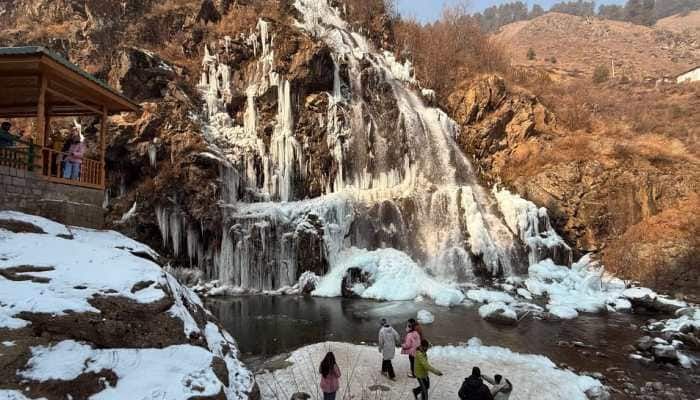China's space lab Tiangong-1 is not going to crash, says top Chinese engineer
In September 2016, scientists at China's CNSA space agency admitted to having lost control of the lab, saying that it would be crash-landing on Earth.
Trending Photos
) (Representational image)
(Representational image) New Delhi: When the Chinese space agency launched its space lab Tiangong-1 in 2011, little did they expect it to come 'crashing' back to Earth six years later.
The Asian country's first space station that was hailed as a potent political symbol of China’s growing power, is expected to crash land sometime this year.
In September 2016, scientists at China's CNSA space agency admitted to having lost control of the lab, saying that it would be crash-landing on Earth. That put an end to months of speculation, as experts watching the path of the station suggested that it had been behaving strangely.
The news also raised immediate concerns of how the falling space debris will put the people on Earth at risk.
The Chinese space station is accelerating its fall towards us and will reach the ground in the coming months, Harvard astrophysicist Jonathan McDowell had told the Guardian in October 2017. It is decaying quickly and he expects "expect it will come down a few months from now – late 2017 or early 2018", he had said.
However, a top Chinese spaceflight engineer has now refuted the reports saying that the space lab is not out of control and does not pose a safety threat.
The Tiangong-1, or “Heavenly Palace 1”, China’s first space lab, was launched into orbit in 2011 to carry out docking and orbit experiments as part of China’s ambitious space program, which aims to place a permanent station in orbit by 2023.
Tiangong-1 was originally planned to be decommissioned in 2013 but China has repeatedly extended the length of its mission. The delay of re-entry into the earth’s atmosphere, which China said would happen in late 2017, had led some experts to suggest the space laboratory may be out of control.
Zhu Congpeng, a top engineer at the China Aerospace Science and Technology Corporation, told the state-backed Science and Technology Daily newspaper that the space station was not crashing and did not pose a safety or environmental threat.
“We have been continuously monitoring Tiangong-1 and expect to allow it to fall within the first half of this year,” Zhu told the newspaper.
“It will burn up on entering the atmosphere and the remaining wreckage will fall into a designated area of the sea, without endangering the surface,” he said.
Re-entry was delayed in September 2017 in order to ensure that the wreckage would fall into an area of the South Pacific ocean where debris from Russian and U.S. space stations had previously landed, the paper said.
The California-based Aerospace Corporation, a non-profit group that works for the US government, said the Tiangong-1’s re-entry was unlikely to be controlled but was highly unlikely to hit people or damage property, according to a post on its website last updated on Jan 3.
“Although not declared officially, it is suspected that control of Tiangong-1 was lost and will not be regained before re-entry,” it said. There may be hazardous material on board that could survive re-entry, it said.
Advancing China’s space program is a priority for President Xi Jinping, who has called for China to become a global space power with both advanced civilian space flight and capabilities that strengthen national security.
Beijing insists that its space program is for peaceful purposes, but the U.S. Defense Department has said China’s program could be aimed at blocking adversaries from using space-based assets during a crisis.
(With inputs from Reuters)
Stay informed on all the latest news, real-time breaking news updates, and follow all the important headlines in india news and world News on Zee News.
Live Tv







)
)
)
)
)
)
)
)
)
)
